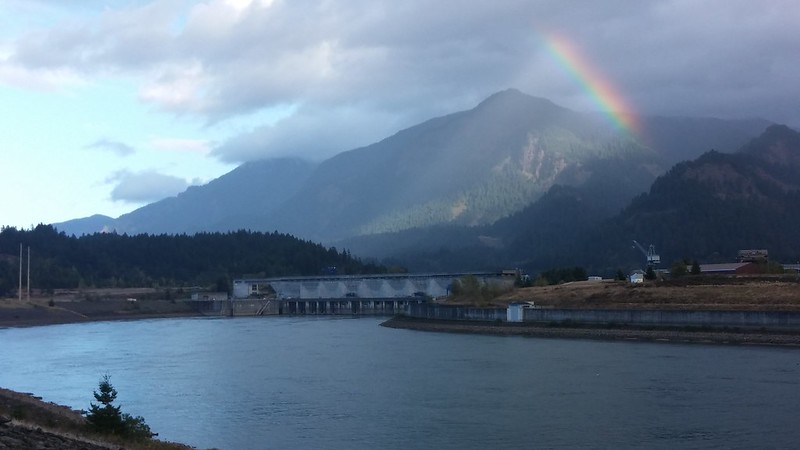Coalition Calls On WDFW Commission To Not Adopt Workgroup’s Columbia Reforms Changes
A growing and wide chorus of voices from the Northwest sportfishing and boating world is pressing Washington’s Fish and Wildlife Commission not to adopt changes to hard-won Columbia River salmon reforms ahead of an expected Sept. 10 vote on the matter.

A coalition of sportfishing advocates, boat manufacturers and a marine trade group, tackle makers and sellers, guides, fly fishing clubs and others say the citizen panel shouldn’t adopt a subcommittee’s recommendations to change nontreaty commercial Chinook allocations and methodologies, nor continue to allow gillnets on the mainstem for one stock or bring them back for others.

“Recreational fishing is an integral part of the economy of Washington’s rural and urban areas, but the [Columbia River Workgroup] policy threatens an industry that is already reeling from drastic salmon fishing closures in Puget Sound, a statewide fishing closure due to COVID-19, and the exclusion of most of the industry from federal relief funds under the CARES Act,” reads an Aug. 27 letter sent by over 100 businesses and organizations in Washington as well as Oregon.
It follows a late July letter from coalition member Northwest Sportfishing Industry Association Executive Director Liz Hamilton and comes out ahead of next Tuesday’s special meeting of the three-member CRW with WDFW staff.

They will go over the original reform policies, a five-years-in review of its effectiveness and discussion about how the revisions would impact conservation, economics of the fisheries and concurrency with Oregon.
And then the matter goes before the full, nine-person commission in midafternoon on Friday, Sept. 10, for a final decision.
It will be a very interesting vote to watch, given the breakdown of their March 2019 decision, subtraction of one member who supported changing some of the reforms, addition of two new relatively untested commissioners, continued opposition of another, and the abstention of the outvoted chair and former chair.
The reforms were agreed to by Washington and Oregon back in 2013 and were a major breakthrough in Columbia fishery management. But they’ve been on shakier and shakier ground in recent years.
Those in favor of changing them argue they were meant to be “adaptive,” that is, they were not set in stone but reshapable as parts either succeeded or failed.
However, coalition members, who generally consider the reforms a commitment, worry that the CRW’s proposal for abundance-based matrix management of spring and summer Chinook would reduce fishing opportunities they say an average of 13.5 and 11 percent for the sport fleet.
“The proposal to cut Columbia River recreational fisheries will have a serious impact on businesses like ours, and the hundreds of manufacturers we purchase from, that depend on Columbia River fisheries and face significant uncertainty due to COVID-19 restrictions,” said Mike Coombs, co-owner of Outdoor Emporium and Sportco in Seattle and Fife, in a press release that came out with the coalition letter.



Full disclosure, Outdoor Emporium and Sportco and their parent company are monthly advertisers in Northwest Sportsman magazine.
The letter also takes umbrage with CRW recommendations potentially making way for gillnetting on spring and summer kings in the mainstem, which they say “would reduce the selectivity of Columbia River fisheries, increase bycatch of non-target species like sturgeon, and expose ESA-listed salmon and steelhead to additional mortalities in mainstem gillnet fisheries.”
“The rest of the United States commercial fishing industry has moved away from gillnets. Why haven’t our commissioners?” said Peter Schrappen of the Seattle-based Northwest Marine Trade Association in a press release.

The reforms were born out of compromise by then Oregon Governor John Kitzhaber in 2012 to hold off a statewide vote banning gillnets.
They increased allocations for sportfishing and phased gillnetting out of the mainstem to off-channel areas near the mouth, with alternative gear to be developed in its place.
Conservation concerns and the potential undoing of the move toward more selective nontreaty commercial fisheries has also drawn concern from a bipartisan group of 15 Washington state senators.
“Columbia River basin fisheries require careful, proactive management with 13 species of salmon and steelhead listed under the federal Endangered Species Act (ESA) along with federal requirements dictating the harvest or removal of excess hatchery fish as a condition of continued hatchery operations. These challenges have driven the transition to fishing methods more capable of selectively harvesting hatchery-reared salmon while also providing increased escapement of ESA-listed and weak wild stocks. By design, gillnets are ill-suited for meeting these challenges in the mainstem lower Columbia River’s mixed-stock fisheries where wild and ESA-listed salmon and steelhead are intermingled with fin-clipped hatchery-reared salmon,” wrote Sens. Kevin Van De Wege (D), John Braunn (R), Ann Rivers (R) and Jesse Salomon (D), among others, in a letter earlier this summer.
In a separate letter sent to the commission today, angler Brian McLachlan also raised concurrent management concerns – over a 300-plus-mile stretch, nontreaty Columbia fisheries are jointly managed by WDFW and ODFW, and the rules should be the same for each state’s fleets and anglers.
“By allowing gillnets to return to the mainstem and allowing greater nonselective harvests, especially on spring, summer and Tule fall Chinook, the CRW’s proposal falls below Oregon’s policy in terms of conservation benefits,” he writes.
Oregon’s commission suspended its Columbia workgroup early this year, disappointing Washington CRW members, who continued to move forward with recommendations.
Meanwhile, friction between the states on fishery issues grew during setting of spring Chinook allocations and exploded into plain view during a seemingly innocuous June ODFW-WDFW conference call to set a sturgeon opener in the estuary.
The full commission’s upcoming vote will test things even further.
The roll call of coalition letter signers is too long to fully list here, but it includes the Northwest Sportfishing Industry Association, NMTA, Coastal Conservation Association of Washington, Northwest Steelheaders, two chapters of Puget Sound Anglers – but interestingly not the president of its new Lower Columbia Chapter – the Theodore Roosevelt Conservation Partnership, Bill Monroe Outdoors, Buzz Ramsey Promo, Fisherman’s Marine, Hewes Marine, Mack’s Lure, Maxima Fishing Line, Renaissance Marine Group, SPD&G Advertising, and Yakima Bait.
Again, full disclosure, several are advertisers or this magazine has close relations with.
